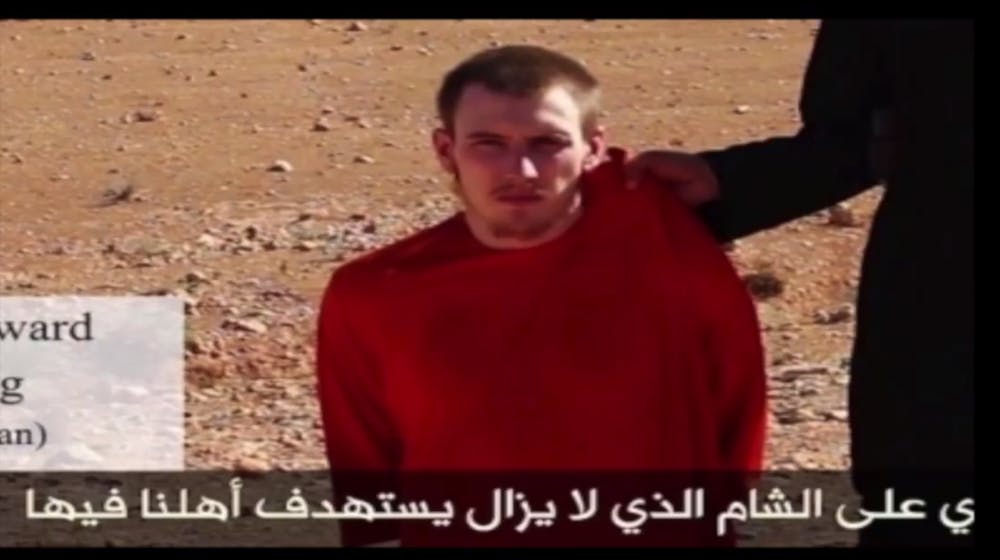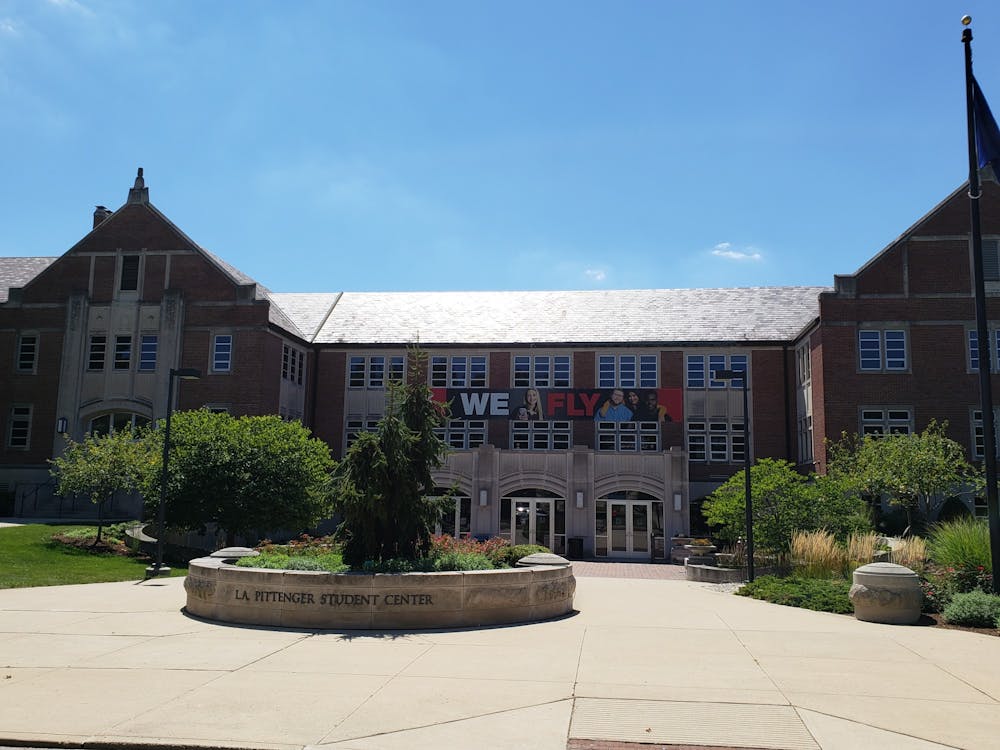UPDATE:
INDIANAPOLIS (AP) — The parents of an American aid worker slain by Islamic State militants say they are "heartbroken" by his death but "incredibly proud" of his humanitarian work.
Ed and Paula Kassig of Indianapolis said Sunday in a statement that 26-year-old Peter Kassig "lost his life as a result of his love for the Syrian people and his desire to ease their suffering."
Kassig was captured last year while delivering relief supplies to refugees of Syria's civil war. The Indianapolis man converted to Islam while in captivity and took the first name Abdul-Rahman.
The Kassigs say they are "incredibly proud of our son for living his life according to his humanitarian calling."
The White House confirmed Kassig's death Sunday after Islamic State militants released a video showing Kassig had been beheaded.
PREVIOUSLY:
INDIANAPOLIS (AP) — Peter Kassig first experienced the Middle East as a soldier, then returned as a student and, finally, as a humanitarian intent on helping those whose lives were upended by the brutal civil war in Syria, whatever their allegiance.
It was while delivering relief supplies for an aid group he founded that he was captured in eastern Syria on Oct. 1, 2013, almost a year to the day in which he appeared in the Islamic State group's video of the beheading of British hostage Alan Henning.
The militants vowed then that Kassig would be next, and they released a video early Sunday that appeared to show that the 26-year-old aid worker had been beheaded. The Associated Press could not immediately verify the video's authenticity, but it was released in the same manner as other IS videos.
Kassig's parents, Ed and Paula Kassig of Indianapolis, released a statement early Sunday through a family spokeswoman.
"We are aware of the news reports being circulated about our treasured son and are waiting for confirmation from the government as to the authenticity of these reports." They said they would have no additional comment and requested privacy.
The release of the Oct. 3 video was heartbreaking for Kassig's family and friends, who had been silent for a year after his capture. Kassig converted to Islam and took the name Abdul-Rahman Kassig while in captivity, and his family spent the ensuing weeks pleading for his life and stressing his humanitarian work and conversion to Islam in rallies and interviews in Indiana and Lebanon. His mother also took to Twitter in hopes of contacting his captors directly.
Kassig's parents repeatedly said that they were unable to meet the demands made of them by their son's captors, but they did not specify what those demands were.
Kassig served in the Middle East after enlisting in the Army in 2006 and ultimately served in the 75th Ranger Regiment, a special operations unit, according to his military record. He served in Iraq from April until July 2007, and was medically discharged as a private first class that September.
His desire to perform aid work in the region was kindled during a spring break trip to Beirut while he was studying political science at Butler University. Kassig, a certified EMT, left school and returned to Lebanon in 2012, where he worked as a medical assistant and humanitarian worker and treated people from all sides of the conflict in neighboring Syria.
Kassig founded a relief organization, Special Emergency Response and Assistance, or SERA, around the belief that "there was a lot of room for improvement in terms of how humanitarian organizations interact with and cooperate with the populations that they serve."
In a January 2013 interview with Time, Kassig said he traveled heavily throughout Lebanon to assess the needs of people there. SERA, he said, focused on supplementing the work of larger organizations by delivering aid that could "do the most good for the most people over the longest period of time possible."
"It's about showing people that we care, that someone is looking out for those who might be overlooked or who have slipped through the cracks in the system for whatever reason," he said.
Kassig's friends and family say he understood the risks involved of working in the region, but that he felt called to help.
Burhan Agha, a 26-year-old Syrian, used to work with Kassig in the northern Lebanese city of Tripoli, delivering aid to Syrian refugees before Kassig moved his operations to southern Turkey. Speaking by phone from Switzerland, where he is seeking asylum, Agha described his friend's purported killing as senseless.
"If I could apologize to each American, one by one, I would," Agha said while weeping. "Because Peter died in Syria, while he was helping the Syrian people. And those who killed him claimed to have done it in the name of Islam. I am a Muslim, and from Syria, and he is considered a part of the Syrian revolution."
Joe Dages, a friend from Louisville, Kentucky, recently told the AP that it was clear how passionate Kassig was about his work when he last saw him in March 2013.
"He felt a need to stay up all day and all night and continue to help because people were dying all the time," Dages said. "He thought that maybe if I can just pour a little more of myself into this we can save a few more lives."
The Syrian war has killed at least 200,000 people according to activists. It has also been an extremely deadly place for aid workers and reporters.
It's not clear how many have been killed or captured in Syria, because many families and governments request news blackouts while they try negotiate their freedom. But suggesting the extent of the danger, the Paris-based Reporters Without Borders estimated that at least 40 reporters have been killed and another 13 imprisoned since the conflict began in 2011. Most of them have been Syrian. And at least 40 volunteers of the Syrian Red Crescent have been killed since the conflict began. The SRC has the widest aid network in the country.
SERA suspended its efforts while Kassig's family worked to secure his release.





